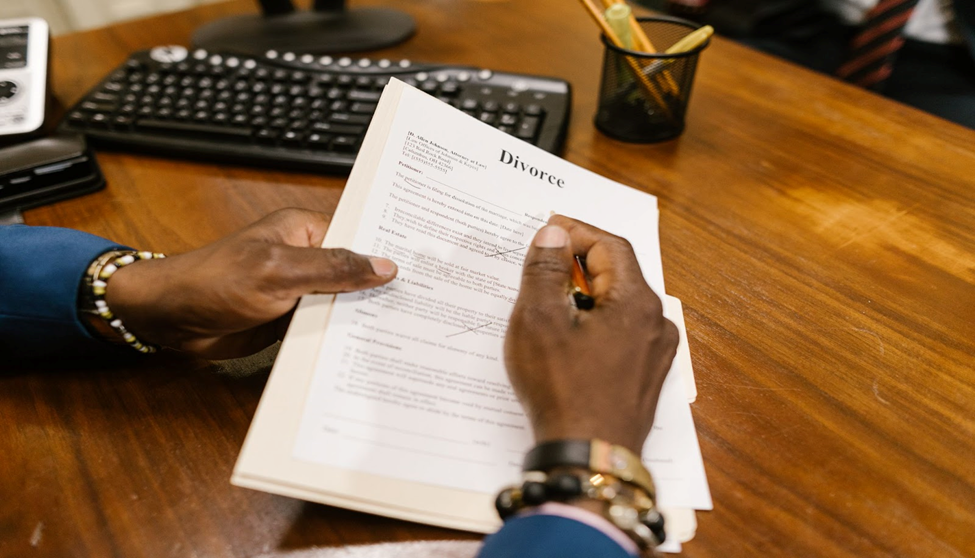Divorce, a legal dissolution of marriage, has become a prevalent life event, affecting millions of individuals worldwide. According to statistics, divorce rates have steadily increased over the years, with a significant portion of marriages ending in divorce. This societal phenomenon underscores the need to understand the multifaceted impact of divorce, particularly on individuals’ mental health.
The relationship between divorce and mental health is complex and multifaceted. Divorce is often accompanied by a myriad of emotional challenges, including grief, sadness, anger, and uncertainty. These emotional upheavals can significantly impact individuals’ mental well-being, triggering anxiety, depression, and other psychological distress. Moreover, divorce can disrupt one’s sense of identity, self-esteem, and life trajectory, leading to profound psychological turmoil.
The purpose of this exploration is to delve into the intricate interplay between divorce and mental health. We will examine the impact of divorce on individuals’ mental well-being, exploring the emotional challenges and psychological consequences that arise during the divorce process. Additionally, we will discuss coping strategies individuals can employ to navigate the emotional complexities of divorce, emphasizing the importance of self-care, seeking support, and establishing healthy boundaries. Furthermore, we will explore the available support systems and resources individuals can access to promote their mental health and well-being during this challenging time.
By shedding light on the relationship between divorce and mental health, this exploration aims to provide insight, guidance, and support to individuals navigating the emotional complexities of divorce. Understanding the impact of divorce on mental health, implementing effective coping strategies, and accessing available support systems are crucial steps in promoting emotional resilience and well-being during this challenging life transition.

Impact of Divorce on Mental Health: Exploring Negative Consequences and Positive Outcomes
Divorce can have profound effects on an individual’s mental health and well-being. It can lead to depression, anxiety, stress, loneliness, grief, and post-traumatic stress disorder (PTSD). Depression can be triggered by the loss of a significant relationship and the upheaval of life, while anxiety can result from the uncertainty and stress surrounding divorce proceedings. Chronic stress can lead to cardiovascular problems, insomnia, and exacerbating mental health conditions.
Loneliness can result from social isolation and changes in social support networks, further exacerbated by depression and anxiety. Grief can occur as individuals come to terms with the end of their marriage, involving stages of denial, anger, bargaining, depression, and acceptance. PTSD symptoms may develop in some cases, particularly in cases involving domestic violence, infidelity, or acrimonious legal battles. Overall, divorce can have both positive and negative consequences on an individual’s mental health and well-being.
Factors Contributing to Mental Health Challenges
- Emotional upheaval and loss: The emotional toll of divorce, including the loss of a significant relationship and the dissolution of shared dreams and plans, can contribute to mental health challenges such as depression and anxiety.
- Financial strain: Divorce often involves significant financial implications, including legal fees, division of assets, and potential loss of income. Financial strain can exacerbate stress and anxiety, impacting individuals’ mental well-being.
- Social stigma: Despite changing societal attitudes towards divorce, individuals may still face social stigma and judgment from family members, friends, and community members, leading to feelings of shame and isolation.
- Disrupted family dynamics: Divorce can disrupt family dynamics, particularly in cases involving children. Co-parenting arrangements, custody disputes, and changes in family structure can contribute to emotional stress and conflict, impacting individuals’ mental health.
- Child custody issues: Custody battles and co-parenting conflicts can be emotionally draining and stressful, particularly when children are caught in the middle of parental disputes. Concerns about parenting time, child support, and children’s well-being can exacerbate mental health challenges for divorcing parents.

Positive Outcomes of Divorce
While divorce can be emotionally challenging, it can also lead to positive mental health outcomes for some individuals:
Relief from a toxic relationship
For individuals in toxic or abusive marriages, divorce can provide relief from emotional and psychological abuse, leading to improved mental well-being and a sense of liberation.
Increased sense of independence and self-esteem:
Divorce can empower individuals to reclaim their autonomy and independence, increasing self-esteem and self-confidence. Breaking free from a dysfunctional relationship can foster personal growth and empowerment.
Personal growth
Divorce often catalyzes personal growth and self-discovery as individuals navigate new challenges, rediscover their identity, and forge a path toward a more fulfilling life. Through introspection and reflection, individuals may become stronger, wiser, and more resilient from divorce.

Coping Strategies for Individuals Navigating Divorce: Promoting Emotional Resilience and Well-Being
Divorce is a challenging life transition that can evoke a range of emotions and practical challenges. To navigate this tumultuous period and maintain mental well-being, individuals can employ various coping strategies for emotional processing, practical adjustments, and self-care practices.
Emotional Processing
Emotional processing is crucial in navigating the complex emotions associated with divorce. Acknowledging and expressing these emotions healthily can facilitate healing and emotional growth. Strategies for emotional processing include:
- Journaling: Writing down thoughts and feelings in a journal can provide an outlet for processing emotions and gaining insight into one’s experiences during divorce.
- Therapy: Seeking therapy with a licensed therapist can offer a supportive environment to explore and process emotions, gain coping skills, and develop strategies for managing stress and anxiety.
- Support groups: Participating in support groups with others going through similar experiences can provide validation, empathy, and a sense of community, reducing feelings of isolation and loneliness.
Practical Adjustments
Practical challenges often accompany divorce, and developing coping mechanisms to navigate these challenges is essential. Some practical adjustments individuals can make include:
- Financial planning and budgeting: Creating a financial plan and budget can help individuals regain control over their finances and make informed decisions about their financial future post-divorce.
- Co-parenting and child custody arrangements: Establishing clear communication and boundaries with co-parents, developing a co-parenting plan, and prioritizing the well-being of children can help individuals navigate the complexities of co-parenting after divorce.
- Social and living arrangements: Adjusting to social and living arrangements, such as finding a new living space or establishing new social networks, can help individuals adapt to their new circumstances.
Self-Care Practices
Self-care is essential for promoting mental well-being and resilience during divorce. Prioritizing self-care allows individuals to nurture their physical, emotional, and psychological needs. Some self-care practices include:
- Maintaining healthy sleep habits: Establishing a regular sleep routine and prioritizing restful sleep can improve mood, cognitive function, and overall well-being during divorce.
- Engaging in regular physical activity: Regular exercise, such as walking, jogging, or yoga, can reduce stress, boost mood, and promote overall physical and mental health.
- Practicing relaxation techniques: Mindfulness, meditation, deep breathing exercises, and progressive muscle relaxation techniques can help individuals manage stress, anxiety, and emotional distress.
- Nurturing healthy relationships: Investing time and energy into nurturing supportive relationships with friends, family members, and loved ones can provide emotional validation, companionship, and a sense of belonging during divorce.
Conclusion
Divorce can have complex and varied effects on individuals’ mental health, encompassing both negative consequences and positive outcomes. While divorce may trigger depression, anxiety, stress, loneliness, grief, and PTSD in some individuals, it can also lead to relief from toxic relationships, increased independence, self-esteem, and personal growth for others. Understanding the multifaceted impact of divorce on mental health is crucial for individuals navigating this challenging life transition, as it allows for effective coping strategies, support systems, and opportunities for personal growth and healing.
By acknowledging the challenges and opportunities presented by divorce, individuals can navigate this transformative experience with resilience, self-compassion, and hope for the future. Also, coping strategies are vital in promoting emotional resilience and well-being during divorce. By employing strategies for emotional processing, practical adjustments, and self-care practices, individuals can easily navigate the challenges of divorce and emerge from this transformative experience with strength, resilience, and a renewed sense of self. It is important for individuals going through divorce to prioritize their mental well-being and seek support when needed as they navigate this challenging life transition.



